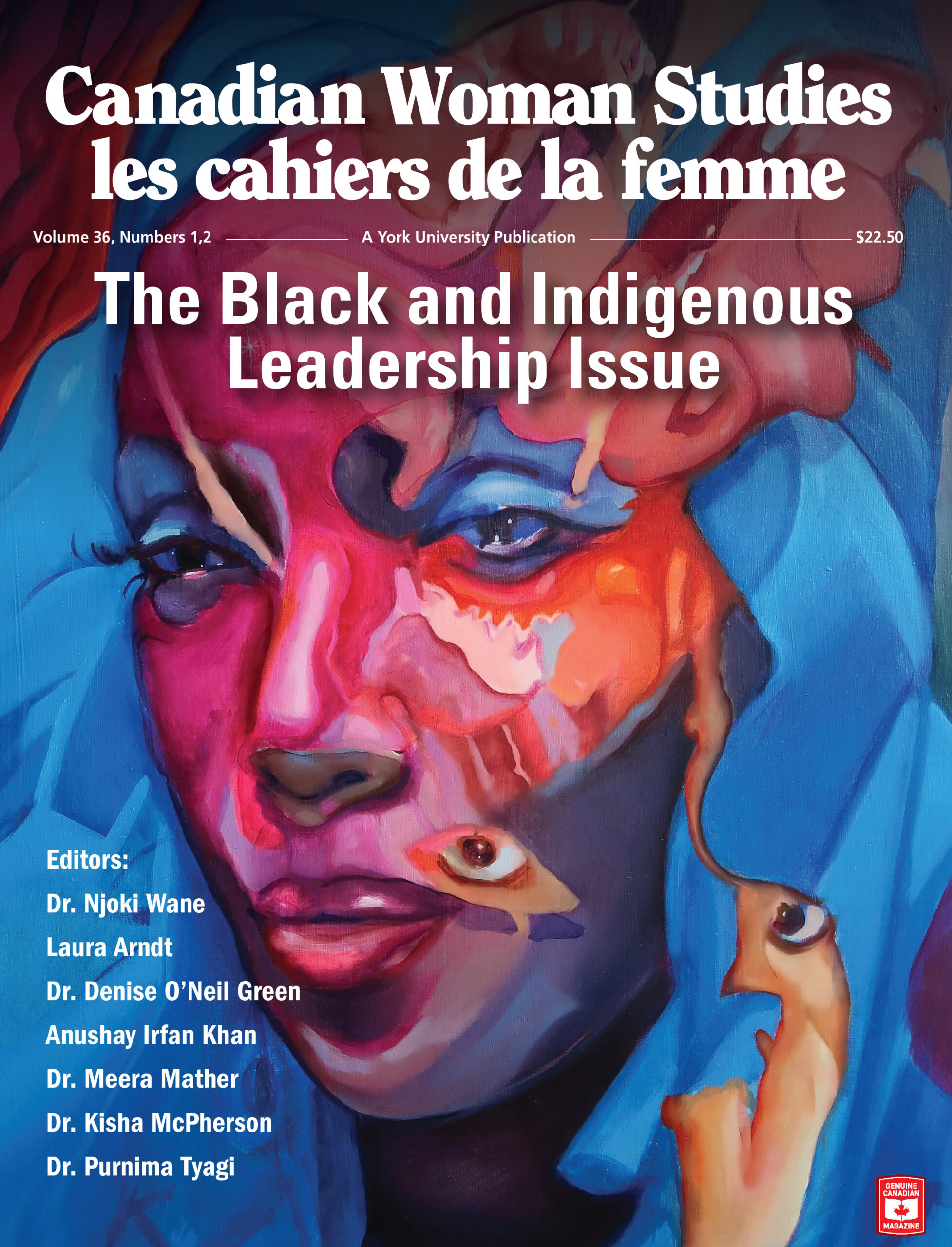Vol. 36, No. 1,2 (2023): The Black and Indigenous Leadership Issue
The advancement of women into leadership positions in organizations continues to be challenging. This reality is rooted in systemic and societal structures that disenfranchise women as they move through the corporate ranks or as they struggle to have their voices heard within their own communities. There is evidence that women are be-ginning to disrupt dominant gender ideologies by taking different approaches in their careers, within their specific professions. Women are taking risks and agreeing to take part in leadership in different organizations. However, despite all these efforts, women leaders continue to be underrepresented in every sector of society and this is more pronounced for those from marginalized groups, such as Black, Indigenous, and Racialized (BIR) women. For the few that hold leadership positions, little research and literature has been dedicated to their experiences in these roles (Jean-Marie et al.; Sanchez-Hucles and Davis). Research has shown that although Black, Indigenous, and Racialized women have made strides in various organizations, they continue to face personal, professional, systemic, and institutional challenges in reaching top leadership positions globally (Jean-Marie et al.; Sanchez-Hucles and Davis). Leadership as a concept has significant normative and political capacities, as well as consequences. The concept has been discursively overworked and theoretically underdone in policy and in literature. We have seen a multiplication of adjectival descriptors: instructional, visionary, moral, e-leadership, servant, entrepreneurial, distributive, transactional, transformational, emotionally intelligent leadership.
Over the last decade, research has been paying attention to what diverse leadership entails. Various authors have indicated that the purpose of diverse leadership is to increase the degree of inclusiveness and equity in an organization by challenging and altering the policies, practices, and beliefs that form the organizational system. This should be everyone’s concern, both whites and persons of colour, both men and women.
The articles in this special edition focus on the marginalization of Black, Indigenous, and Racialized women in leadership positions and highlight the challenges they face and how they have addressed them. The main objective of this edition is to contribute to the leadership discourse of Black, Indigenous, and Racialized women by centring on their narratives and lived experience.
Putting together a special edition on BIR women in leadership positions was both exciting and worrisome because of the scarcity of literature on research on this topic, especially within the Canadian landscape. However, the editorial board felt that within the context of women in leadership discourse, the special edition would create new pathways of understanding intersectionalities and leadership practices. By weaving BIR women’s leadership practices into learning, knowledge creation, and discourse, we felt that readers will have a better understanding of how BIR women’s roles play out in leadership. Some of the questions we have tried to address are: What is leadership? Does one need to be in a position of authority to be a leader? What does it mean to be a leader from marginalized communities? What does it mean to be an Indigenous female in a leadership position? What does it mean to be a Racialized female in a leadership potion? What does it mean to be a Black female in a leadership position? What strategies do women employ when they find themselves in positions of leadership? What do women in leadership positions bring to various organizations? From the articles that are represented in this edition, leadership does not only mean being a leader in an organization. You can be a leader in your community, among your peers, in your own home, etc.





Reviews
There are no reviews yet.